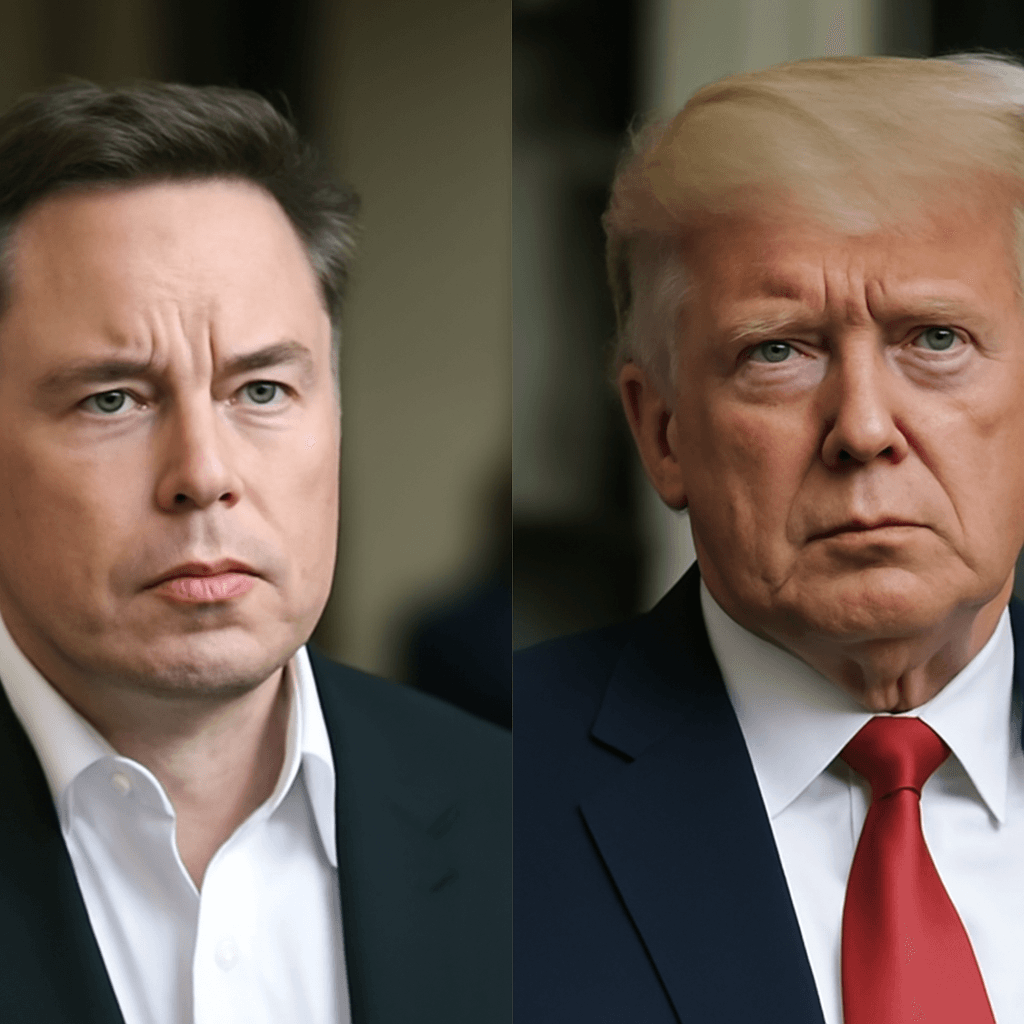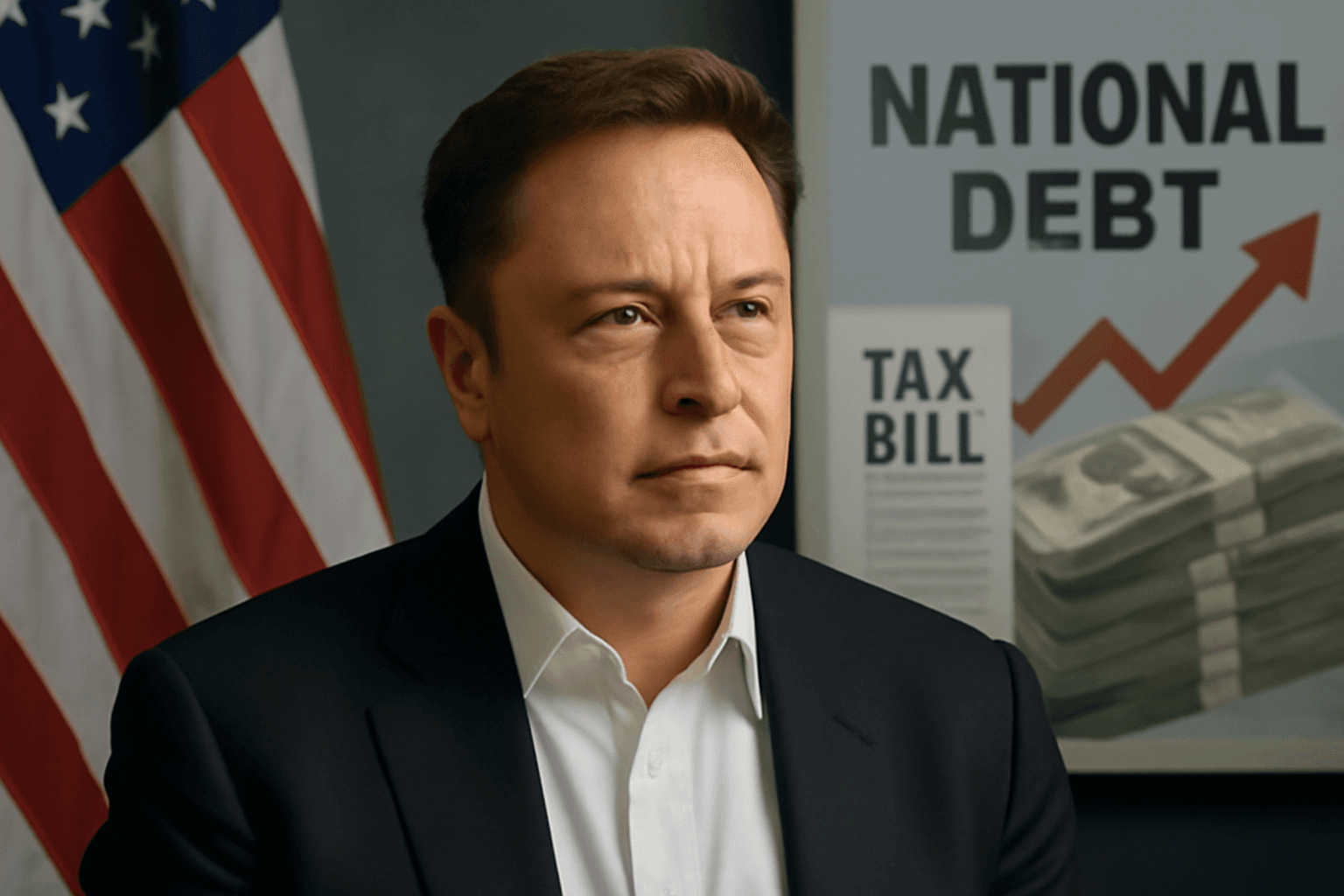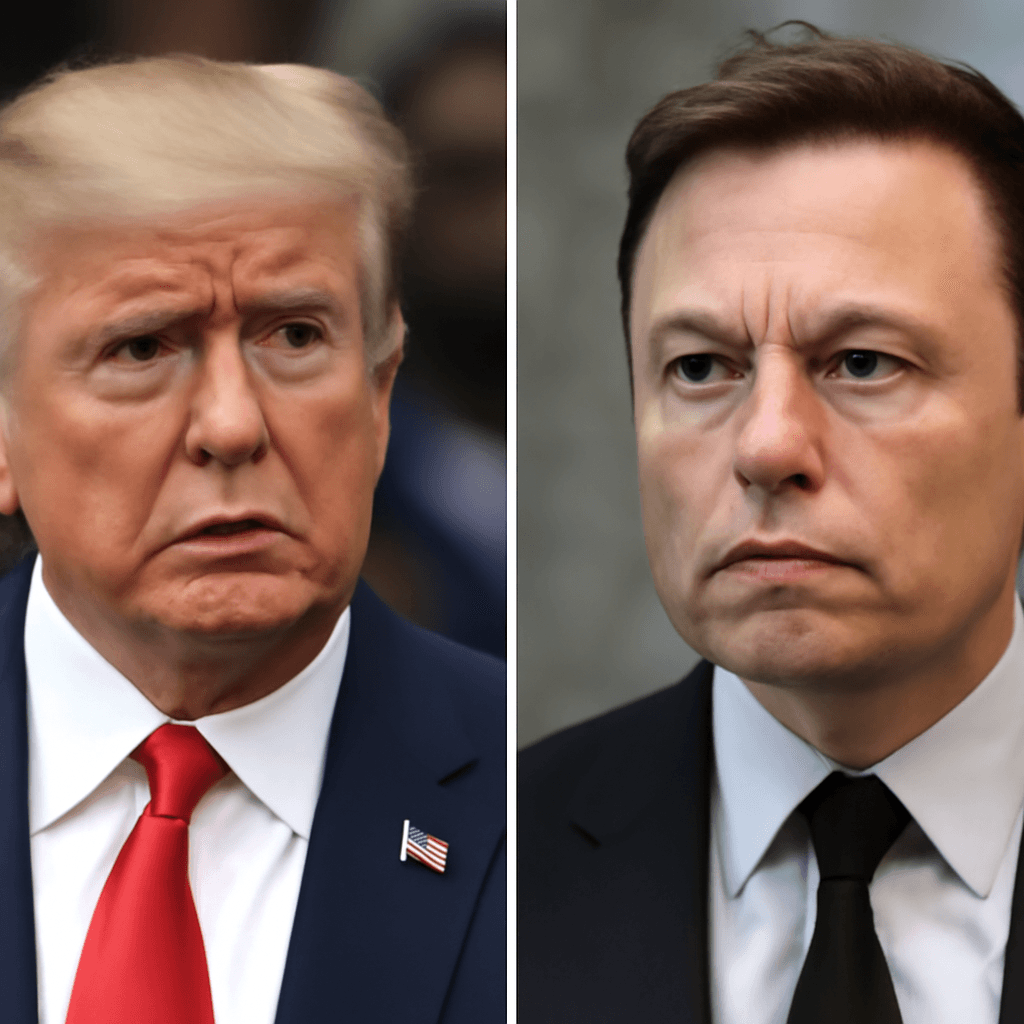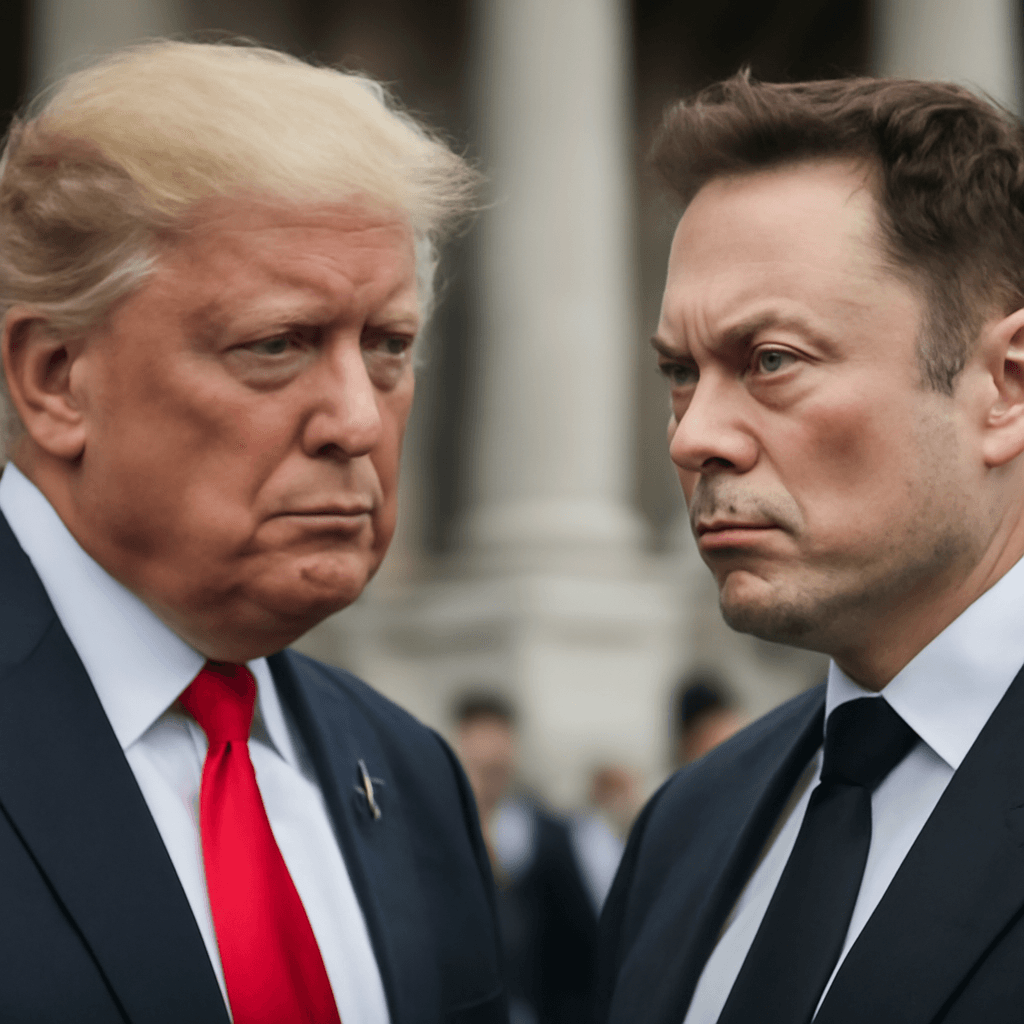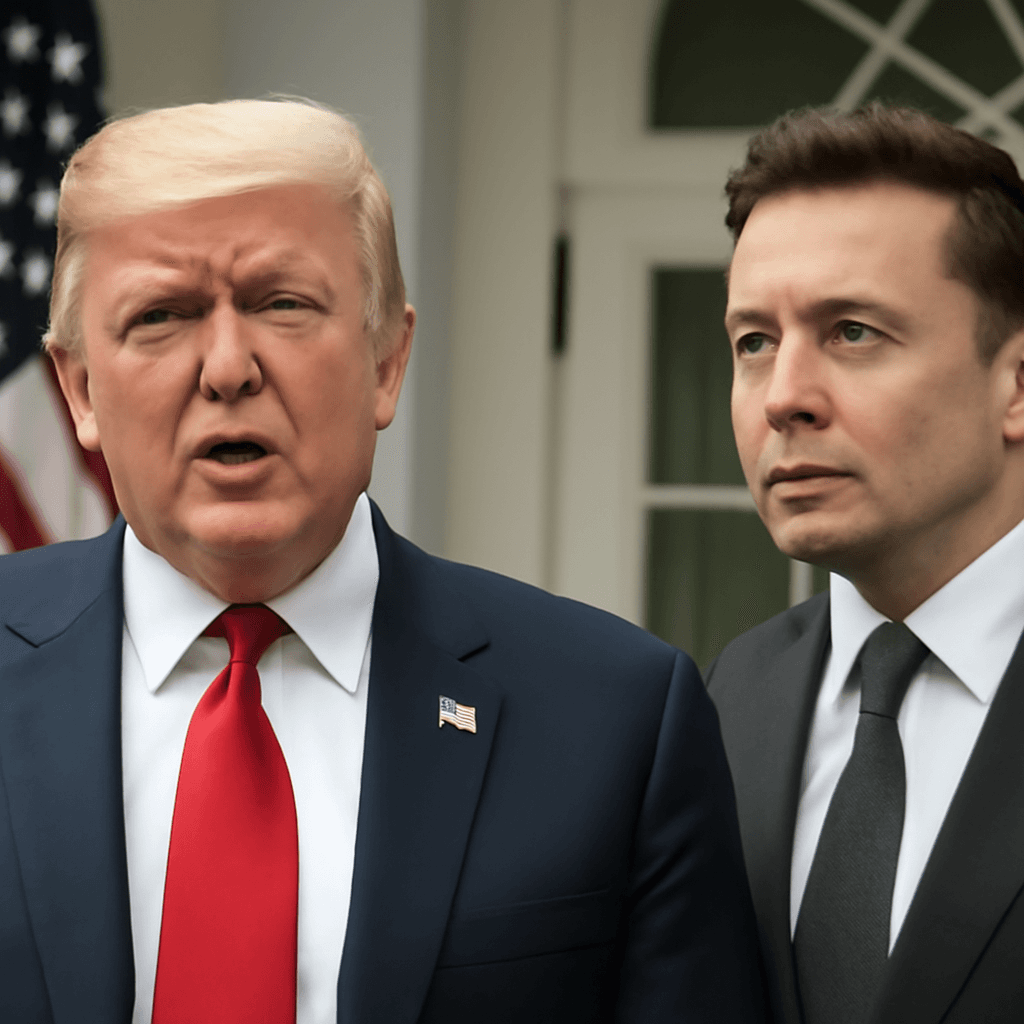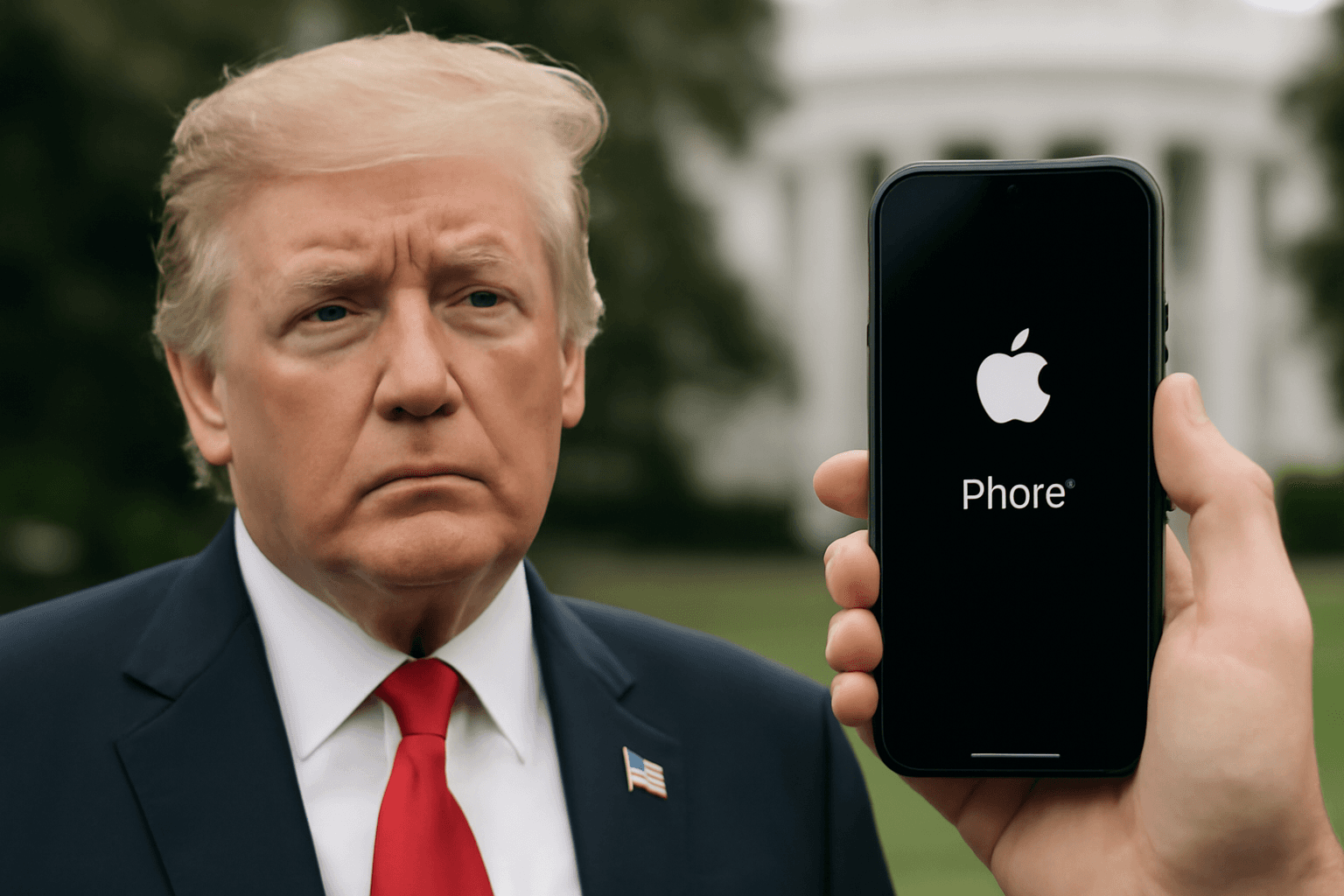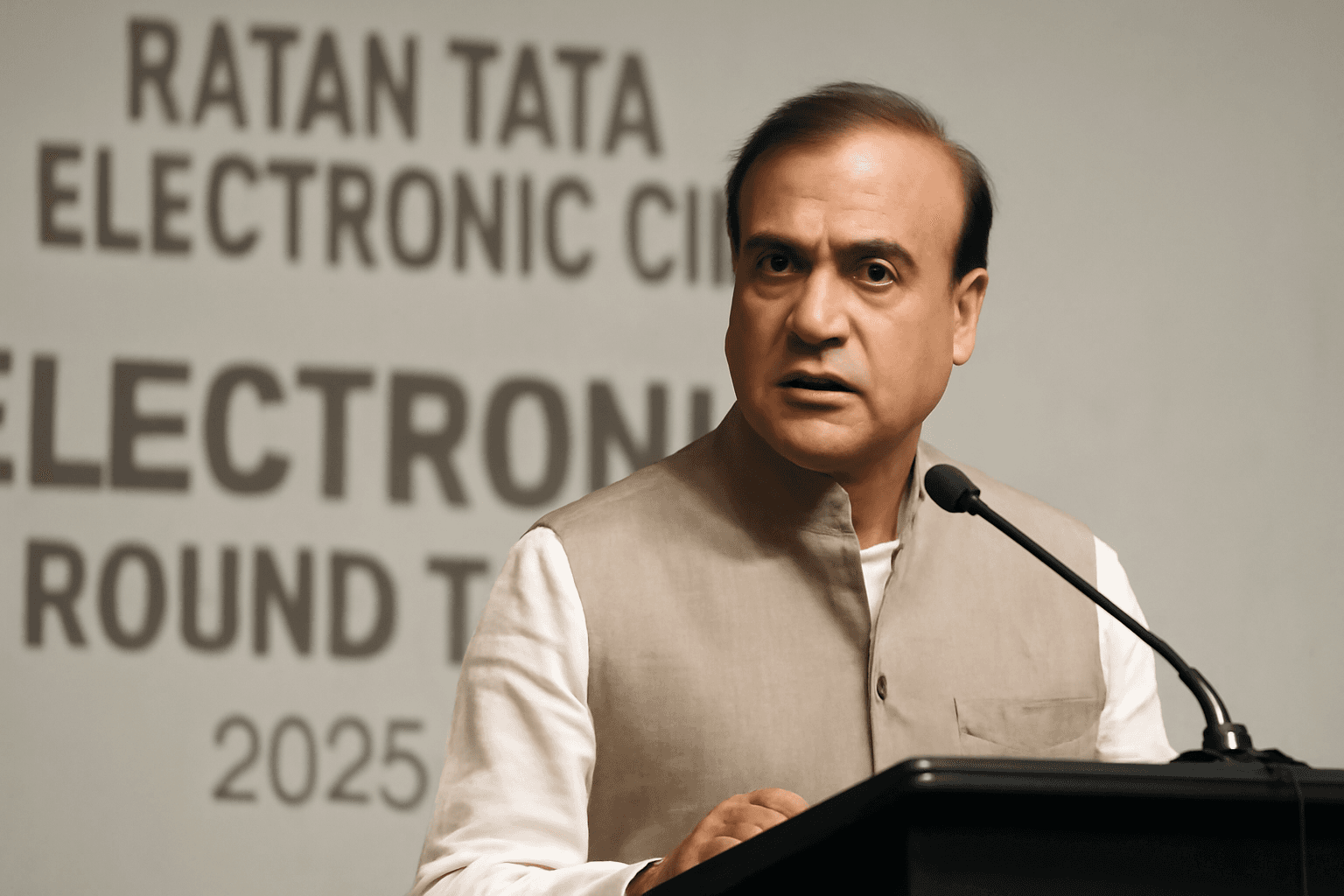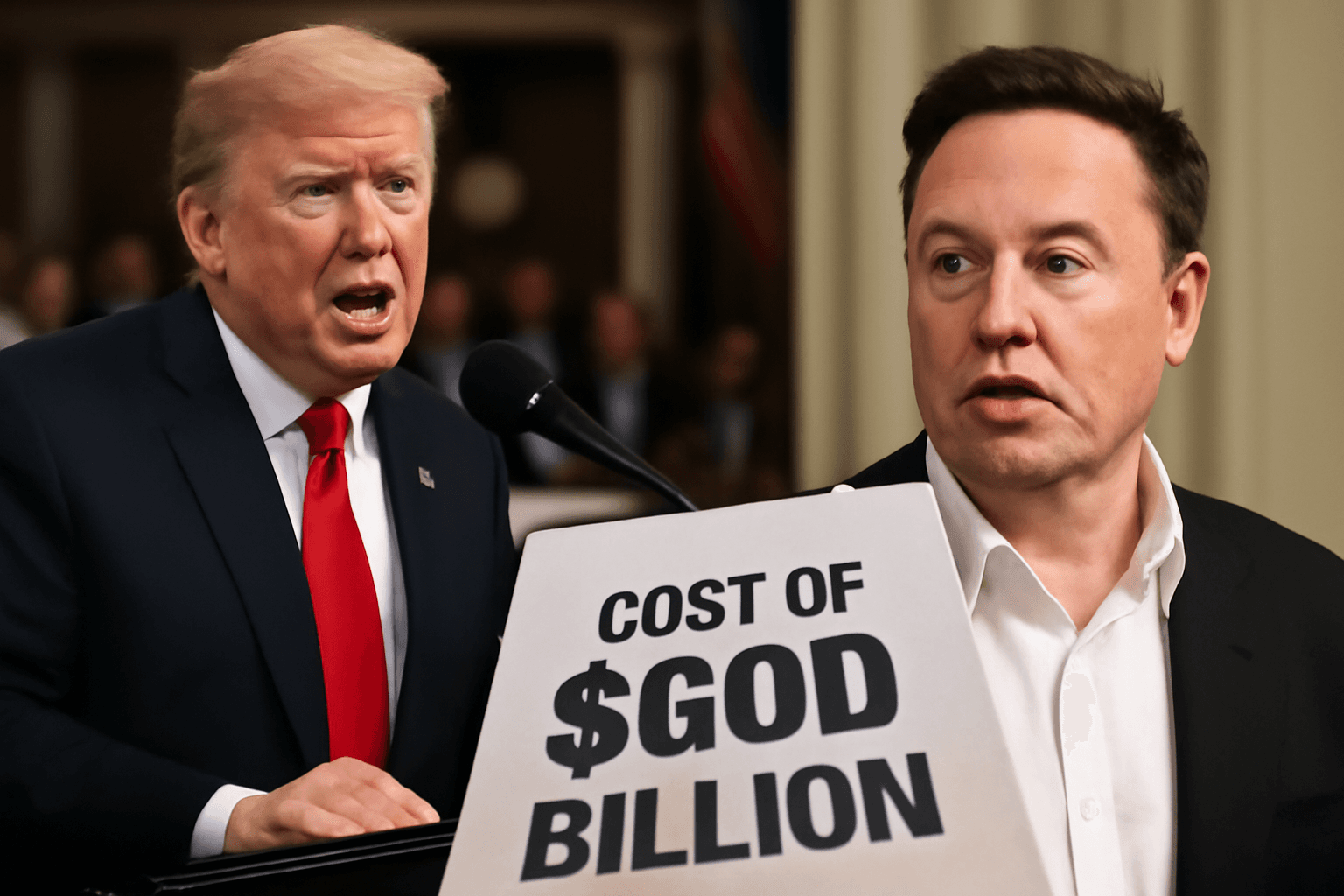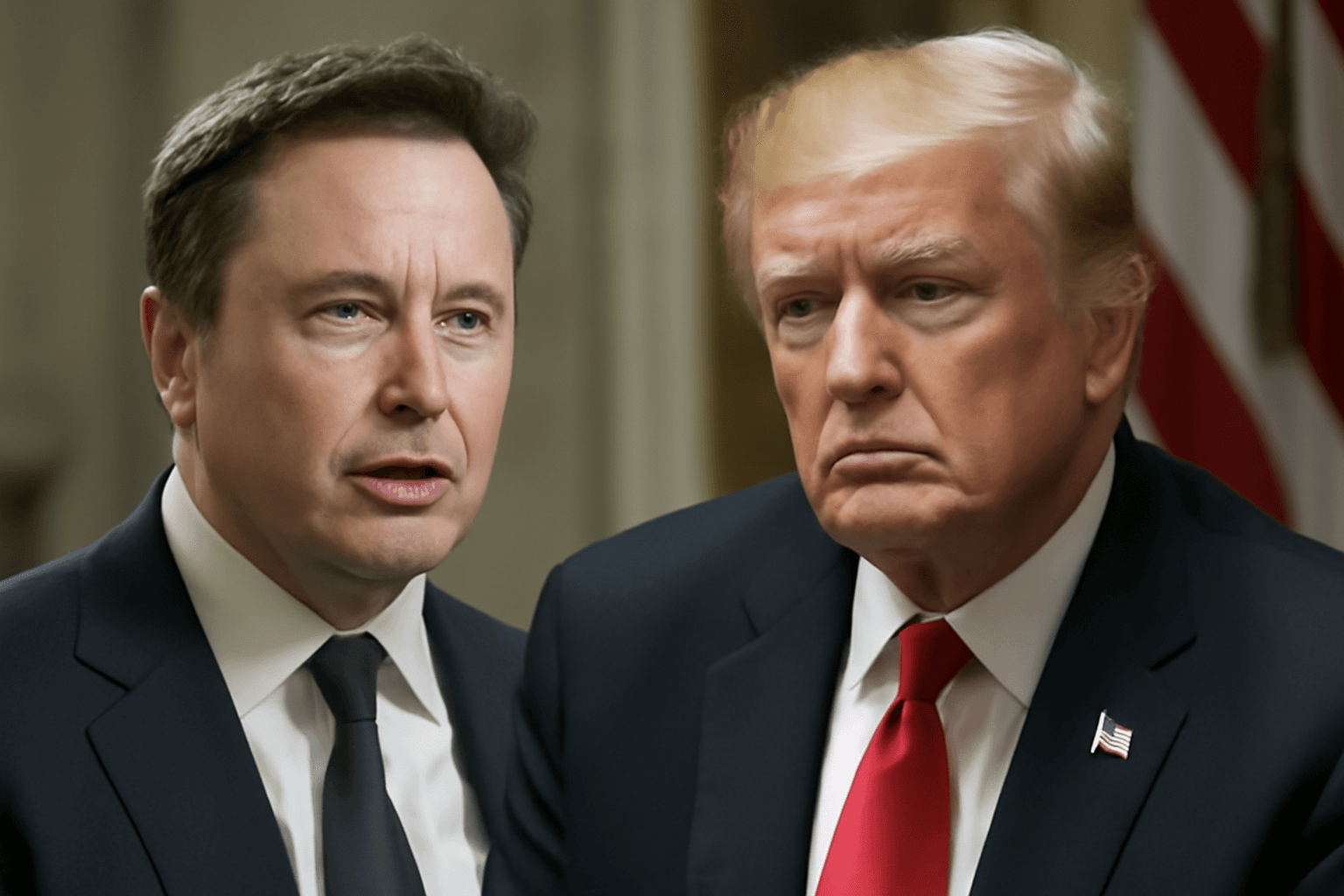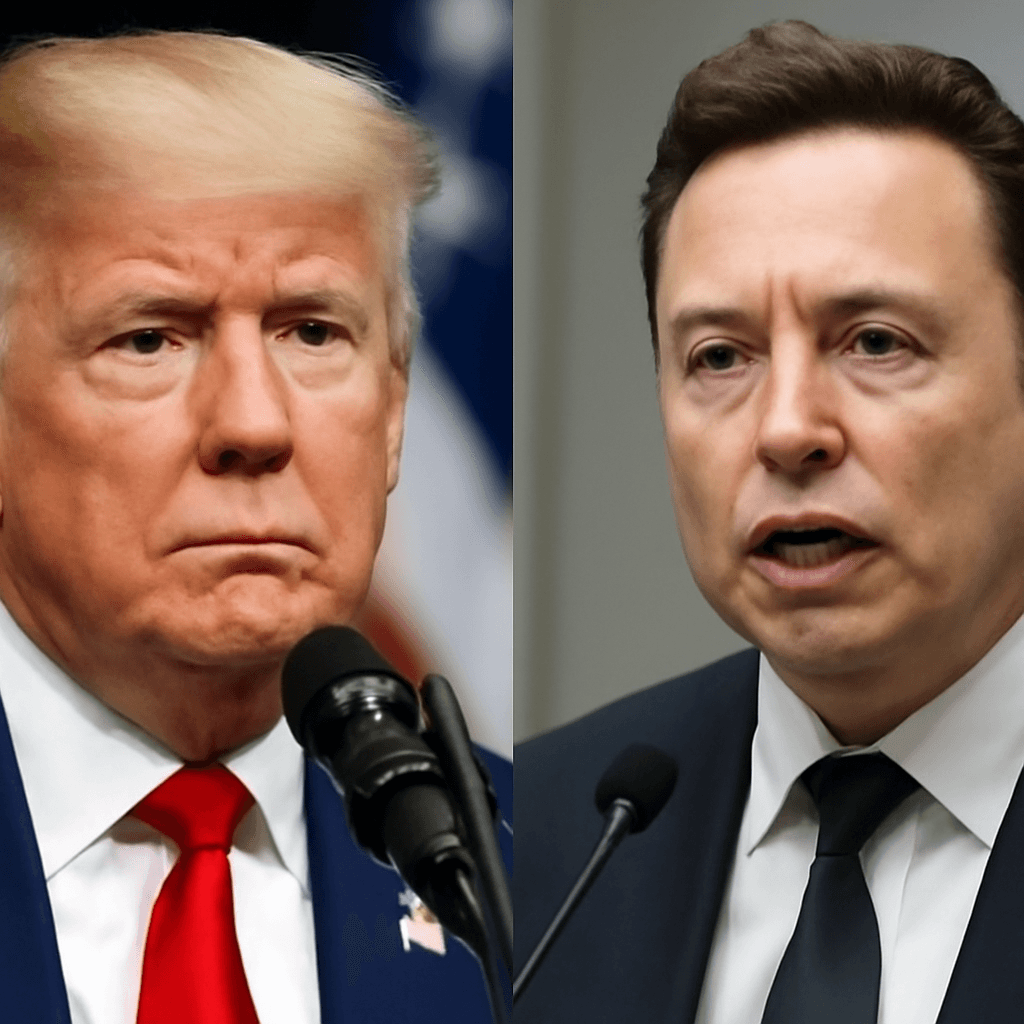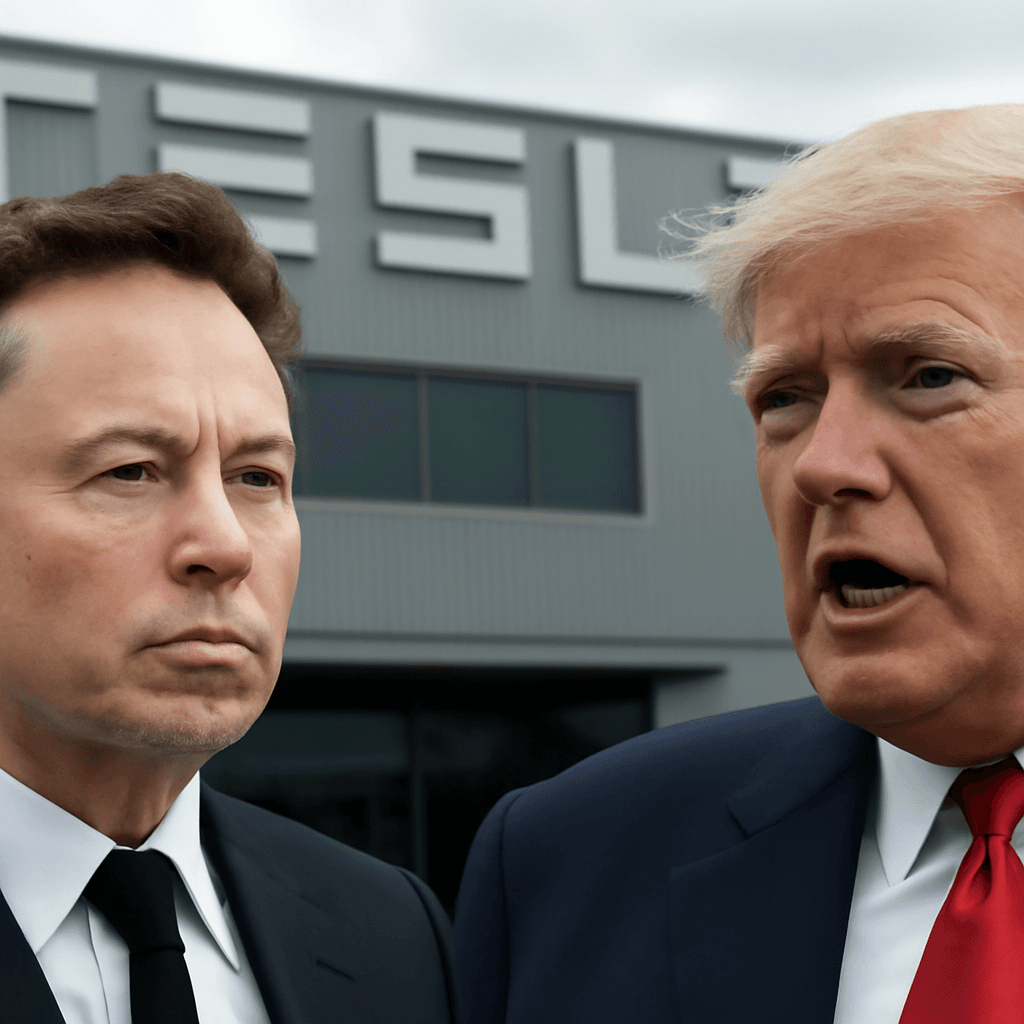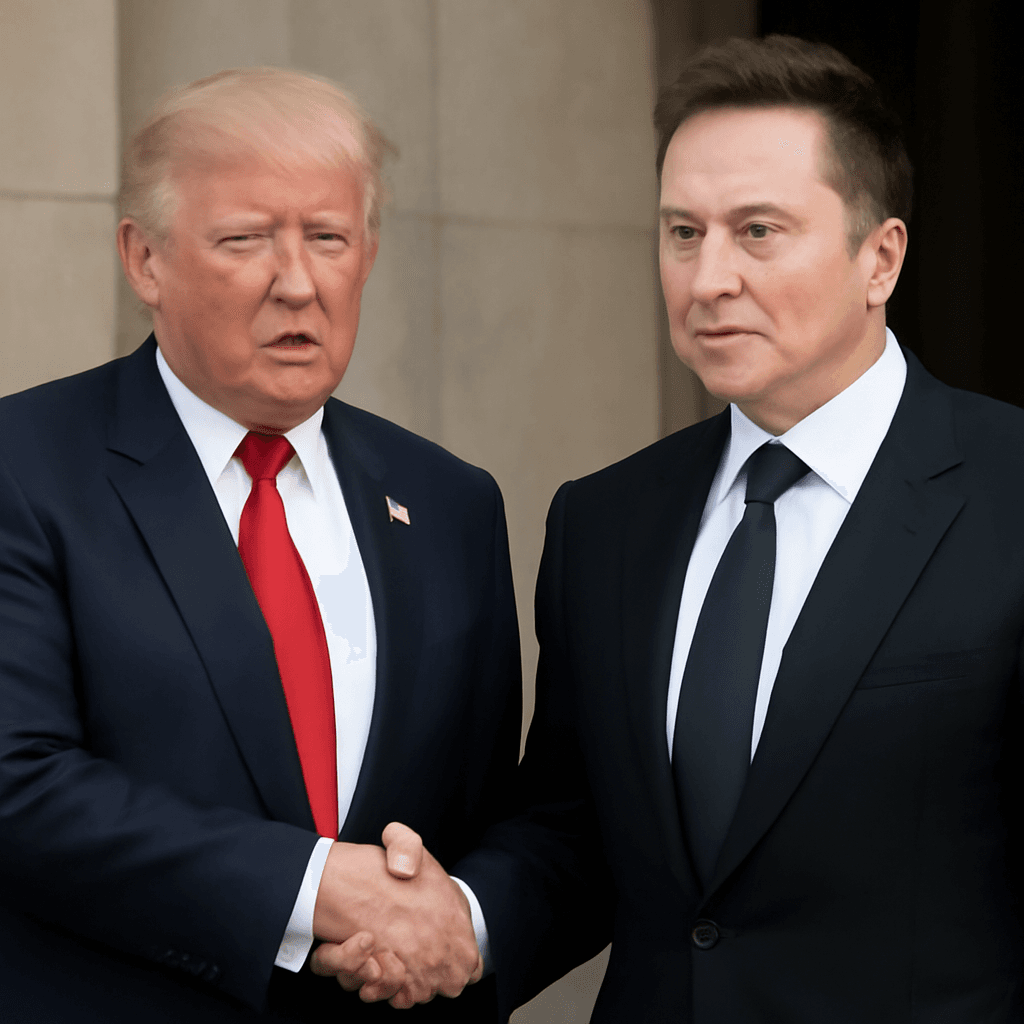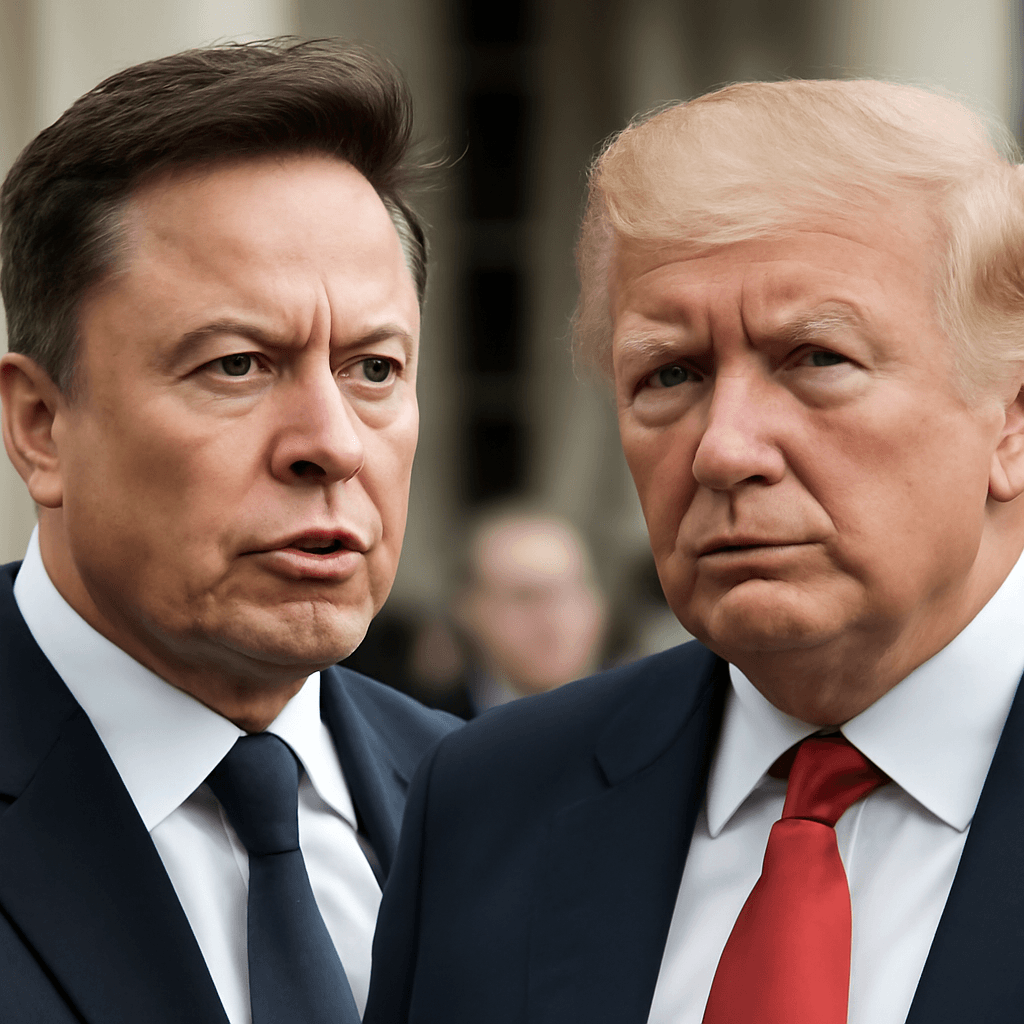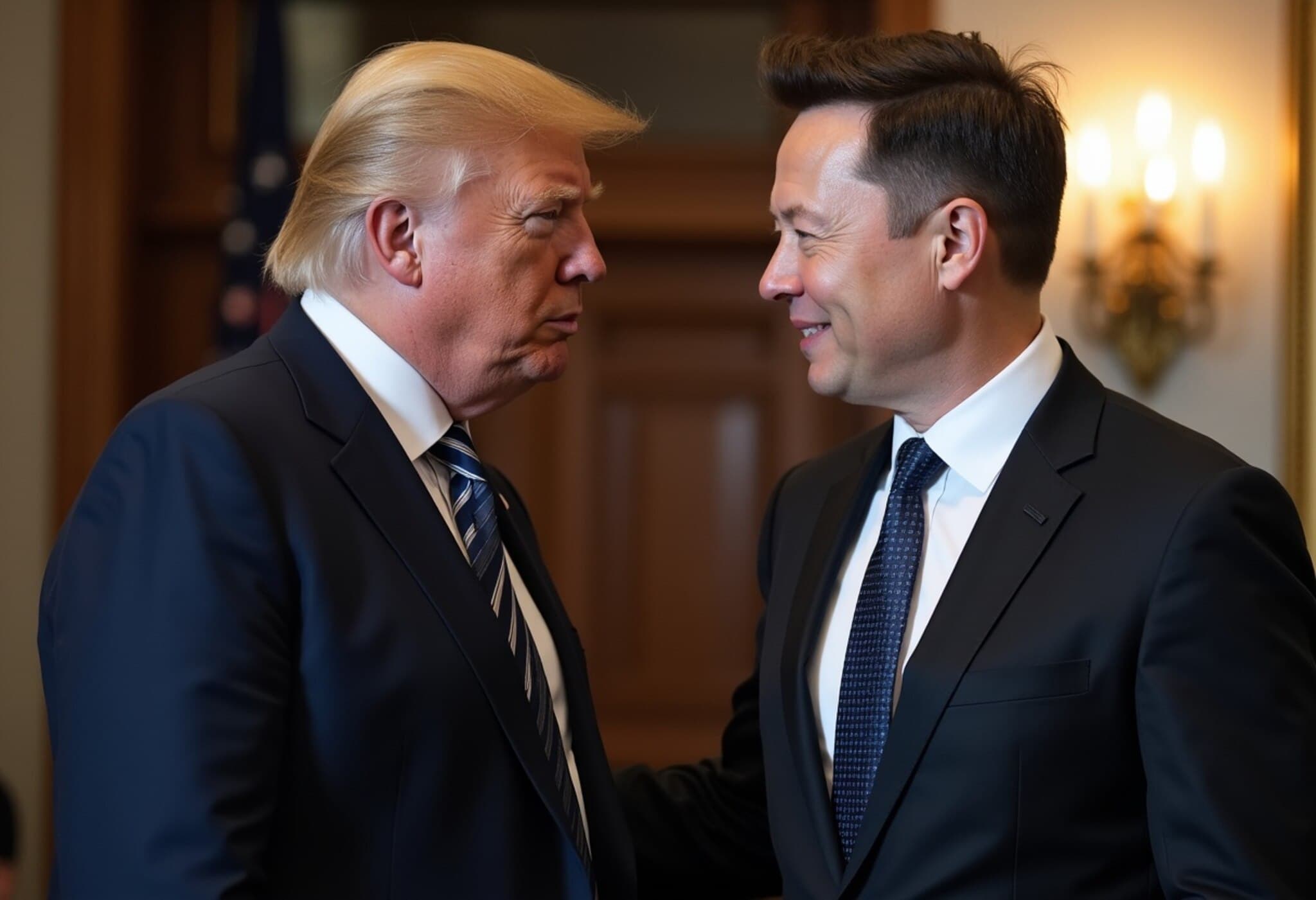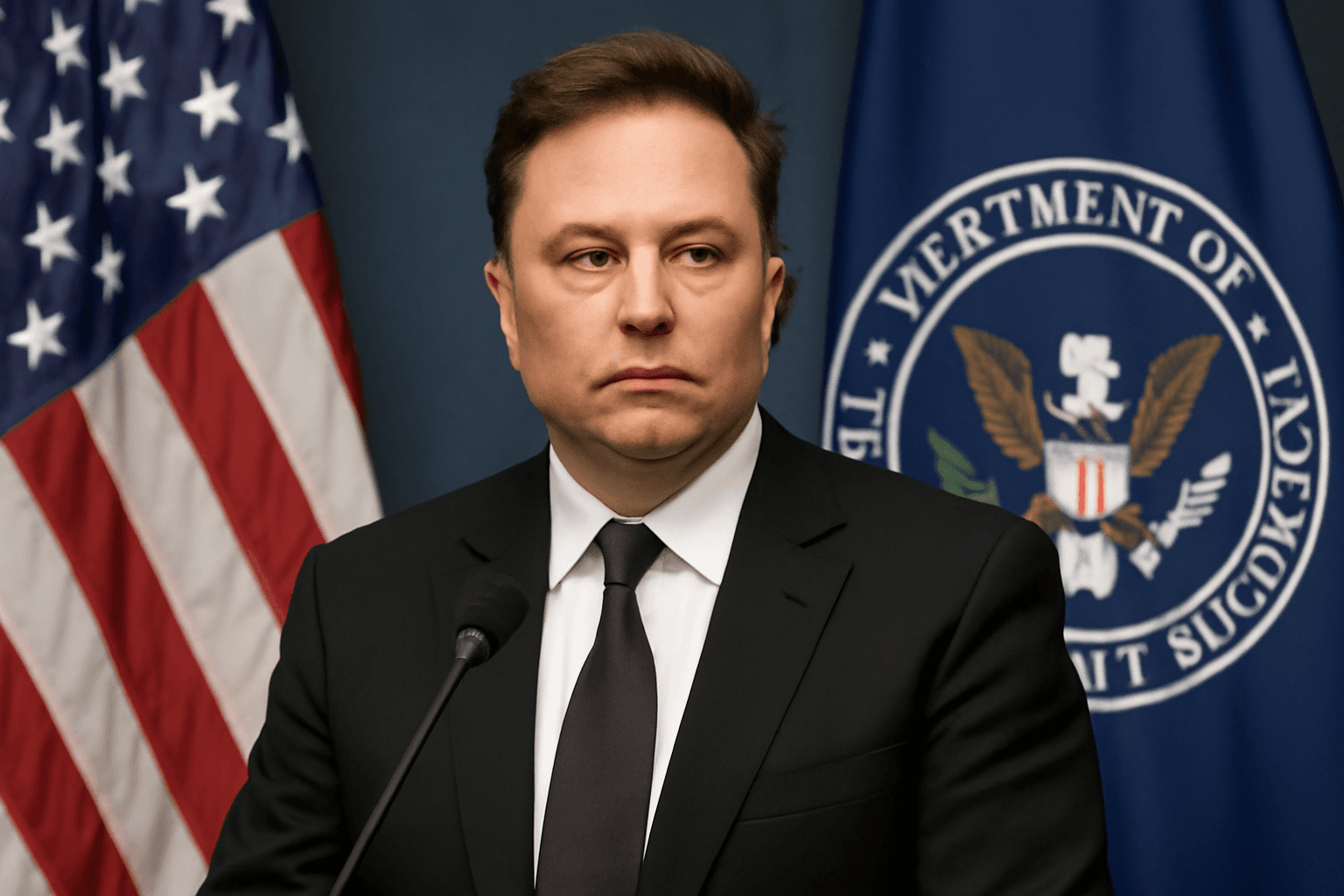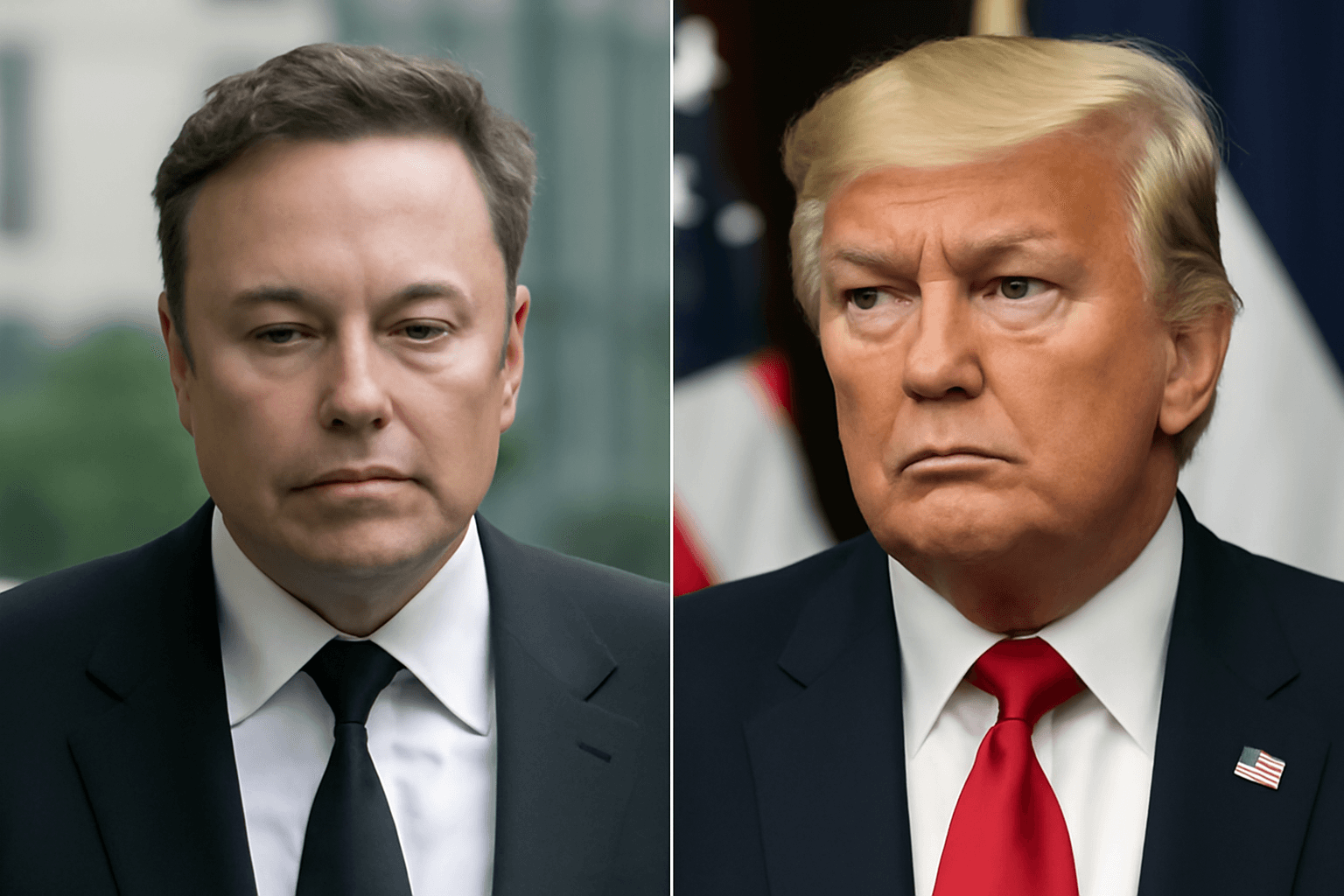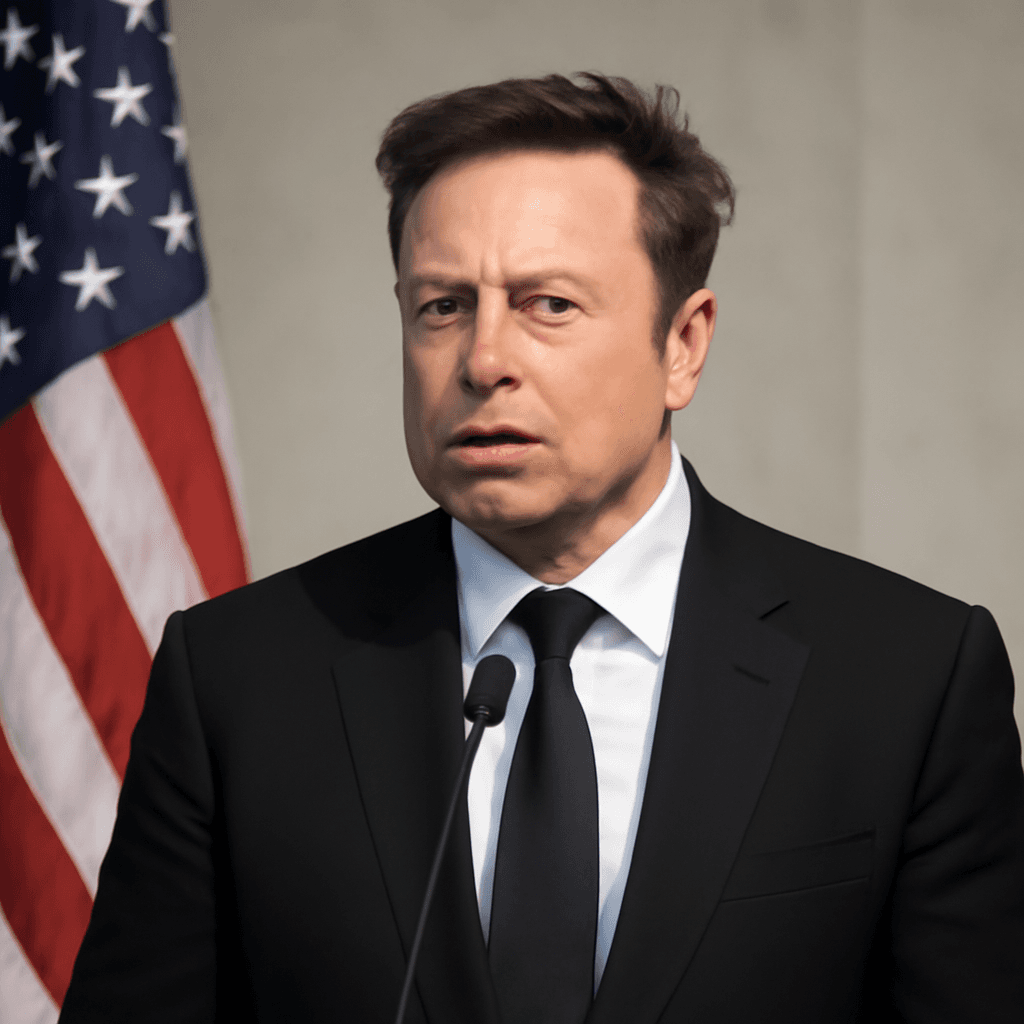Elon Musk and Donald Trump Clash Over Economic Policies
In a recent escalation of tensions between Elon Musk and former US President Donald Trump, sharp criticisms and accusations have emerged, impacting market sentiments and stirring public debate over key economic legislation.
Background of the Dispute
During a meeting with German Chancellor Friedrich Merz, Donald Trump addressed Elon Musk's objections to the "Big, Beautiful Bill," a legislative package focused on economic initiatives. Trump downplayed Musk's criticisms, expressing preference for Musk's candid feedback over negative public discourse.
However, the dialogue quickly deteriorated, moving from policy disagreements to personal accusations on social media platforms. This breakdown has coincided with a significant drop in Tesla's stock, which fell more than 14%, erasing nearly $150 billion in market value.
Allegations Related to Jeffrey Epstein
At the core of the dispute, Musk alleged that the Trump administration withheld information relating to Jeffrey Epstein, the convicted financier and sex offender. Musk claimed that records involving Trump were deliberately kept from the public, stating, "Time to drop the really big bomb: @realDonaldTrump is in the Epstein files. That is the real reason they have not been made public."
Despite the lack of presented evidence, concerns about transparency remain significant. The White House dismissed these allegations as an unfortunate episode stemming from Musk’s dissatisfaction with the legislative bill.
Musk's Claims on the 2020 Election
Musk also asserted his influence in Donald Trump's 2020 election victory, contending that without his financial support and campaigning efforts, the election results would have been different, potentially favoring Democrats in both the House and Senate.
Trump responded by emphasizing his campaign's strength independent of Musk, dismissing the claims as ingratitude.
Disagreement Over the Economic Bill’s Electric Vehicle Provisions
The disagreement extended to elements of the "Big, Beautiful Bill," including changes to electric vehicle (EV) mandates. Trump accused Musk of opposing the bill primarily because it affected Tesla’s business interests, highlighting Musk’s reaction to proposed EV mandate cuts as overly negative.
Musk countered by accepting the EV and solar incentive cuts but criticized the bill for excessive unrelated spending, terming it "a mountain of disgusting pork." He called for removal of non-energy-related subsidies while preserving the EV changes.
Terminology of Bill Knowledge and Timing of Criticism
Trump criticized Musk for initially supporting or knowing the bill's contents intimately yet expressing opposition after leaving office. Musk refuted these claims, stating he was never shown the bill prior to its passing and criticized the rushed legislative process.
Threats Regarding Government Contracts and SpaceX
Amid the feud, Trump suggested lawmakers should consider terminating Musk’s government subsidies and contracts, a move that Musk initially responded to by announcing plans to decommission the SpaceX Dragon spacecraft.
The Dragon capsule, essential for NASA's crewed missions to the International Space Station (ISS), is funded by a contract valued at approximately $4.9 billion. This spacecraft is currently the only American vehicle capable of ferrying astronauts to orbit, with Russia's Soyuz system as the alternative.
Shortly after, Musk clarified that SpaceX would not proceed with decommissioning the Dragon spacecraft, easing concerns over potential disruptions to the ISS program.
Musk Warns: Tariffs May Trigger Recession in 2025
Musk also criticized Trump’s tariff policies, cautioning that the imposed tariffs could precipitate a recession within the latter half of 2025. He emphasized that trade restrictions and economic pressure could negatively impact the country’s financial stability.
Trump’s Defense of the Bill
Despite the ongoing confrontation, Trump redirected focus to the legislative bill's accomplishments through posts on social media. He highlighted the bill as one of the greatest economic packages introduced, emphasizing a historic reduction in government expenses by $1.6 trillion and the largest tax cuts ever enacted.
Trump warned that failure to pass the bill could result in a 68% tax increase and other adverse economic consequences.
Conclusion
The public and highly personal conflict between Elon Musk and Donald Trump underscores deeper divisions over economic policy, transparency, and political influence. With Tesla’s stock volatility and potential impacts on government contracts, the fallout from this feud could have broader implications for the technology and automotive sectors in the United States.

